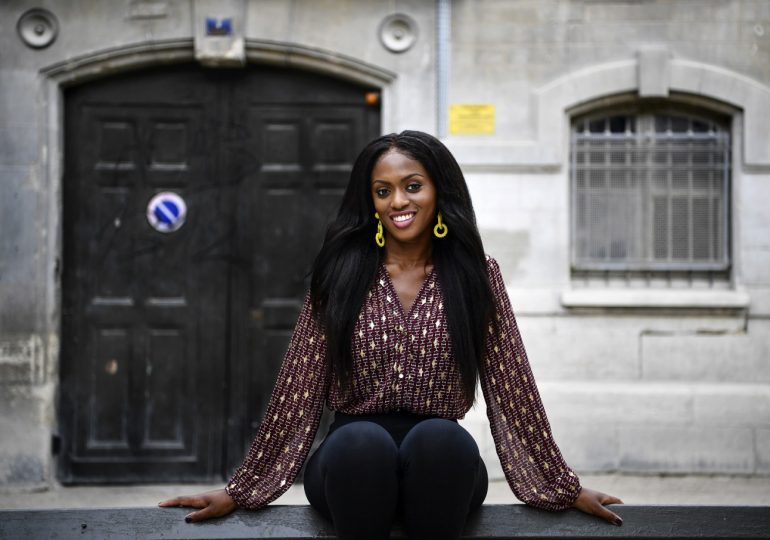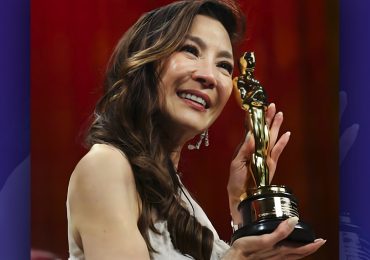If you have been a longtime follower of All the Pretty Birds, you know that we centralize on multicultural, multiethnic storytelling. As this digital age further connects our global experiences, accessibility to social media has allowed the internet to make a spectacle out of cultural nuances. The Flock at ATPB is proudly made up of BIPOC women based in five countries, speaking many languages, with an archive of unique global experiences. In efforts to bring depth to these much needed conversations on what we call ‘The Global Black Experience’ we bring you the series The Flock Talks. In this feature, French Editors Emmanuelle Maréchal and Amanda Winnie Kabuiku take us on a journey unpacking “Parisian girl” stereotypes and where it leaves Black French women. The observations unpack how segregated the ‘Parisian girl’ and led them to reflect on their identity, and what it means to be “Black French.”
The Flock Talks: We Need to Debunk “Parisian Girl” Stereotypes.
“The French girl” is a concept Paris loves selling to the world. She is always white, thin, bourgeoise, and Parisian. The world is utterly enchanted by her; fascinated by her beauty secrets (she pretends not to have) and her (life)style. Straight out of a New Wave movie, she is Brigitte Bardot, Catherine Deneuve, or Jane Birkin. She is an archetype we, Amanda Winnie Kabuiku and I Emmanuelle Maréchal, ATPB French Black Editors, want to debunk. Even before talking about our blackness, Amanda and I discussed how we didn’t fit the French girl’s image because we are not Parisians. Our observations on how segregated the Parisian girl is made us reflect on our identity, and what it means to be Black French.
In Conversation with ATPB Editors Emmanuelle Maréchal and Amanda Kabuiku
“Why is the Token French Girl Always Parisian?”
Emmanuelle Maréchal: Let’s talk about that image of the “Parisian girl” we’re known for abroad, and that (quite frankly) irks me.
Amanda Winnie Kabuiku: I remember watching this French series called Paris etc., in 2018. The female lead is French white, lives in the heart of Paris, doesn’t shower much, but always looks great. She eats cheese and bread, drinks wine, but ever so thin. She is like the women in Vogue Paris. I come from the North of France, and when I see that woman, I feel much more French than her!
EM: Agreed. There is always this gap between Paris and the rest of France. As if we don’t exist.
I grew up in Bordeaux, which is an entirely different atmosphere than Paris. The city’s history is heavily linked to the slave trade. I also have roots from another region called Vendée, which is known for being the only monarchist region during the Revolution. If you look at where I am from in France, I am much more French than this “Parisian woman”. That is why I don’t know what they are talking about when they tell me, “I’m not French” or “I don’t conform to the ‘French woman’s’ image”. We talk a lot about the Parisian girl’s beauty standards, but we don’t speak enough about her cultural standards.
Looking at our background, we are the French woman because our cultural standards are not reduced to a Parisian arrondissement.
AWK: In France, we hate communitarianism. Yet, no one is more communitarian than the Parisian girl stereotype. She has her clique and keeps herself in a state of mediocrity, because she believes in that fabricated identity that people abroad crave. Hence, she writes books and creates series with her friends about The Life of A Parisian Woman. One of my friends who works at Vogue Paris explained the magazine only catered to the Parisians living in the 17th arrondissement. And it’s true. It doesn’t target French women at large, but this very niche demographic. When I think about the Parisian woman, she doesn’t embody the French woman in all its diversity.
EM: Your point about Vogue Paris is very telling, because foreigners are the ones buying it, not French people.
AWK: When you look at Emmanuelle Alt, the Editor-in-Chief of Vogue Paris, she embodies perfectly the Parisian girl. She is like the svelte models of the Saint Laurent ads within the magazine. Paris Fashion Week and the fashion industry itself in Paris are as communitarian as the Parisian. If we don’t promote this idea of ‘métissage‘ as the absolute antidote against racism, there is no opportunity. You need to be mixed-race or the only black person in the room. It’s always about tokenism. Though I love being French, I hate the hypocrisy, and the veiled racism. We grow up believing we will be offered everything on a golden plate if we work hard. So we attend the best schools, trusting meritocracy will prevail, only to confront a glass ceiling.
“How Does Racism Reveal Itself In French Culture?”
EM: It is precisely the reason why I am not in France anymore. I was tired of having to prove I was French. Growing up, I lived in a predominantly white, bourgeois environment. I didn’t experience extreme racism, but I also found myself in situations where I realized what was happening to me was not normal. I never felt more French than when I left France. It was exhausting having to justify my love for France, because this is something they enjoy asking children of immigrants, whereas they won’t ask a white French person to express their loyalty to France. There is always this idea that you have to prove your French-ness; you have to show commitment to the country.
AWK: That’s it! You know it’s not normal, but then you tell yourself it’s okay. I studied in Nantes, a very bourgeois city but more segregated. While chatting with a school friend, as she states she “should touch wood”, she grabbing my arm as if I was a piece of wood. And you are here thinking she is your friend and you love her, but what she just did is very racist. And when explaining that what she did was unacceptable, her face read skepticism.
EM: Once you say the word ‘racist,’ they assimilate it to you telling them “you are bad” when all you are trying to tell them is that “because racism is systemic, you sometimes act or say racist things.” It doesn’t mean that you don’t appreciate them.
When you exercise critical thinking, it shows you care for your friend or country.
AWK: In my opinion, when you are critical about your country and point out it’s dysfunctions, it’s out of love and desire for it to improve. The left-wing parties created the idea that we are an open-minded society. I was talking about it with my parents, who have consistently voted for them. Consequently, I also voted left as it if was a tradition, because they always promised to do things for non-white people. Then I began to ask myself why was I so loyal to the party? I began to question what they were really doing for us.
Now we are in this era of social and racial turmoil with the Black Lives Matter movement. It is time to question the concept of ‘French Humanism’ because it is all a lie! There is a silver lining, in the sense that we, Black people, are starting to understand that we can be proud to be French.
It is within our right to question France and outline what is not working, because it is our society too.
EM: I agree with you. In my case, I am apolitical because I don’t see any party that represents me. I know I have the right to vote. I am using it, because it is still a right I have, and that gives me (to a certain point) freedom of expression. Still, I never vote by conviction. I always do by necessity because the last candidates we had were quite mediocre; a vote for plague or cholera.
AWK: Ultimately, we are French when paying taxes or voting against Marine Le Pen, but when we express our discontent as Black people, we are no longer French. Fortunately, I see things are moving with social media. It’s great to observe that it impacts French politics when something is happening elsewhere. The government cannot sweep our dirty secrets under the rug. Emmanuel Macron, for instance, though there are many things not to like; he is the first French president to recognize that non-white people in the country are in a situation of permanent inequity. No president could acknowledge this before.
“How Do We Define The Black French Experience?”
EM: [Macron] was the one to bring the topic of race to light with the BLM protests in France when he made his speech describing them as acts of secession.
AWK: We talked about veiled racism and the fact we can’t have racial statistics in France, for me, is problematic. It’s not about quota, but about knowing what is the percentage of Black people among unemployed people, for example. The government rejects racial statistics because there is this idea of cultural integration and that everything is alright. This could not be further from the truth.
EM: When you talk about cultural integration, you are referencing assimilation, this very colonial concept where one should forget about their roots in favor of French-ness.
On that note, I would like to say one thing:
I am unapologetically Cameroonian, but the ethnic group to which my family belongs also influences the way I feel about my French identity. In Cameroon, my ethnic group heavily contributed to slavery and colonialism, so our relationship with France is different. My mother was born two years after Cameroon independence in 1960. She grew up during the decolonization process.
When talking about French people, she still calls them the settlers, but she doesn’t use this word negatively. She grew up in an environment where when French people were there, everything seemed great, but unrest began to happen when they left. And she conveyed me this vision until I began to question it.
AWK: I am Congolese, and from this point of view, we are different. Belgium colonized us, and when they left, they left. There was no decolonization process. We don’t have this idea of whiteness. At home, my parents speak their language, Lingala, and cook Congolese. So you grow up in an environment where you are proud to be Congolese. I can say I am 100% Congolese and 100% French.
EM: That is interesting how we are coming to our African roots and see how they shaped our identity, because when the French woman is Black, she is also Parisian. The narration is similar to her white counterpart. She’s either from the poor Parisian banlieue either when she studied, she lives in Paris center, speaks a very “French” French, loves minimalism, and is vegan. There is nothing that reminds you she has another culture. The singer Yseult represents the French woman, for me, because she doesn’t fit the mold.
As a finalist at La Nouvelle Star and making her debut album, you assume she wasn’t herself. They made her wear wax print and sing these songs that embodied this idea of French assimilation, but now you see her being herself. Here you see she is a French woman.
AWK: But Yseult is leaving France for Belgium because her opportunities have limits. Right now, we’re talking about French music, but the most acclaimed artists are Belgian, not French. I debated with a friend who asked me why people accepted more Congolese-Belgian singer Lous and the Yakuza than Aya Nakamura. Aya Nakamura is French, and Lous and the Yakuza, beyond singing, her body fits fashion standards.
She can be on the cover of prominent fashion magazines; nobody will be shocked. But Aya Nakamura embodies what France doesn’t want, and she is there telling people whether they like it or not, she is going to be THE French pop star. They wanted a pop star, but not a black, curvy, and tall girl who doesn’t care about them.
“How Do External Influences Contribute to the Conversation?”
EM: They also have this misconception about her music not representing what white French people think of French pop music.
AWK: For me, the French woman is also Aya Nakamura. Her music borrows from successful genres like rap music, R&B, zouk, and kompa. People in France grew up with this music, so her songs are full of influences that we all know. But it is also true that at some point, these genres were lacking. Now we’re arriving in this era where they are replacing pop music.
Aya embodies these girls born in the 90s who didn’t grow up questioning their French-ness. Ultimately, she is not thinking about fitting a mold. Despite insults for being too black or too provocative, she is true to herself. There is no people pleasing.
She makes French less old-fashioned. People say she is killing the language, yet all her song titles and tunes in francophone African countries are known. Not everyone speaks French fluently there. If not for her songs, maybe they wouldn’t even speak French. She contributes to make French a modern language.
People constantly criticize her, but when Madonna dances on Djadja, Aya and her music are French.
EM: I also think people in the media like to describe Aya and Yseult as angry black women because they speak their truth. They create their own rules, which wasn’t the case before, but then they tell you about the Parisian woman as the epitome of the independent and feminist woman when she matches all society’s requirements.
AWK: I think we are living in times where we can’t be feminists. And because of this, Aya and Yseult don’t have a choice. Because they are black, we want them to embody everything that frustrates us, when in the end, they are just girls making music, nothing more, nothing less.
EM: I don’t see them as singers and activists. I think this is very American, Anglo-Saxon to be an artist and activist.
AWK: Exactly, and I think they aren’t. Especially Aya Nakamura, I think she really doesn’t care about this aspect. Yseult has more of a politicized consciousness and language, but I would not compare them, telling one is more intelligent than another. Aya is just a young woman making music.
For the first time, we found ourselves with a black pop star, so we want her to be feminist, intersectional, the face of anti-racism, and we also want her to fit all the negative stereotypes of the black girl. She couldn’t care less about all this. And I think we behave this way because it is the first time seeing someone like ourselves as a pop star, so we want her to embody all our struggles.
EM: It is a pity because it is a double-edged sword. Even we, as black people, want them to match specific conditions because we lack representation. Doing so, we unconsciously collude with the general opinion that wants to put them into boxes.
Leave a comment











